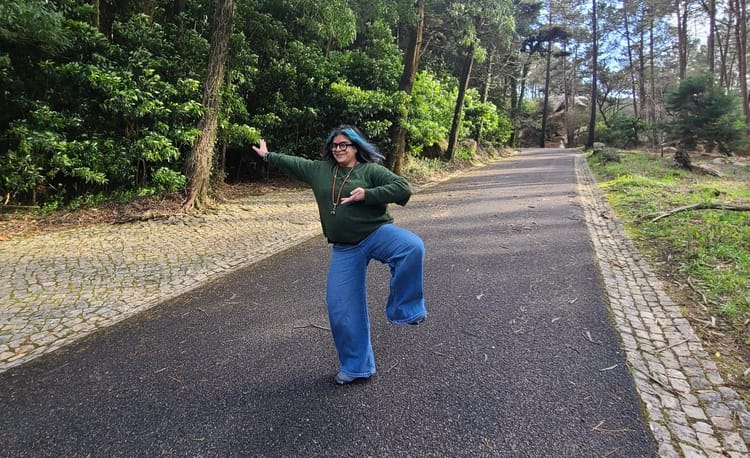Teeth
Note: This post contains details of dental treatments. Please read at your discretion.
I have embarked on an 18-month dental treatment plan with Invisalign aligners. There are many problems with my teeth. They are a metaphor for the circumstances of my life. My jaw is misaligned. Some of my teeth are missing; I have 27 instead of 32. A yellowing, corroding baby tooth on the top right. On the bottom right, I have a molar that is caving inward drastically. I grind my teeth at night and bite my tongue incessantly and it is now scarred. It is safe to say that my jaw and teeth store a lot of trauma.
Origin
My mother had a perfect set of teeth, pearly, aligned, and shapely. She had an electric smile. Hence it was understandable that she was committed to dental treatments for my sister and me. My childhood memories are replete with memories of being in the dental clinics of doctors Daruwalla and Zinzuwadia for my sister’s braces. People are scared of dentists, but for me, it was like visiting friendly uncles and the treatments were something we did on those visits. My mom was friendly with them, and they truly made us feel like we were part of a family.
My sister’s treatment was a success. She has beautiful teeth. When it was my turn, somewhere in the beginning, mom lost interest. Unbeknownst to us, Alzheimer’s was colonizing her brain.
I am not sure if my dad noticed and chose to let it slide as it was not that important, or if it was that he had a busy job that made him work long hours. A lot of the home stuff fell on to my sister. However, my dental work was not assigned to her. She was a child too, so I cannot fault her for missing this bit.
The last time I was at the dentist was to get a root canal done as a cavity had wreaked havoc on one of my right molars. I remember skipping the last part of the treatment, which was to get a cap for the tooth that was treated and filled. I have a vague sense of a flee-freeze response to A. deciding what sort of cap to install and B. paying the dentist. I was 14 years old.
Looking back, I don’t know why I did not tell my dad or grandparents that I needed money for this treatment. My sense is I had already internalized that I needed to deal with things on my own and not be a bother to others.
The Middle
Since coming to the West, I have been visiting the dentist regularly as we have decent insurance. I found that dentists have a way of making one feel like sh*t by telling you everything that is wrong with one’s teeth. I had to stop this woman as she started on my teeth and said, “I want you to know I have endured a lot of childhood trauma in my life. My mother developed a debilitating condition and died before my treatment was completed. I am aware of what’s wrong. Please do not use this tactic with me.” To her credit, she stopped and thanked me for sharing. She told me about Invisalign but I chose to go to a different practitioner as I did not like her customer service.
The new dentist, Dr. Nakul Ratra, is a young man of Indian origin. He looked at my teeth and was honest and said it was above his pay grade. He recommended someone his dad and he used as a consultant from time to time. This honesty was refreshing. When I told him about my trauma and the issue with my tongue, he said, “Maybe your tongue will feel more comfortable relaxing when the bottom misaligned molar goes back into its place.” I was blown away by the sensitivity and wisdom.
The orthodontist, Dr. Bart Iwasiuk is an award-winning Invisalign provider. I promise this is not a sponsored post. I told him about my tongue-biting issue which I wanted to address. He said he was not sure that could be addressed, but he did point out that my misaligned jaw meant I was grinding my teeth viciously which meant they were having a hard time aging well, not to mention jaw pain. His suggestion was to remove my canine baby tooth up front and make the back teeth move forward to close the gap. Since I have missing teeth, doing this would make the number even on both sides. It would also allow the top and bottom to sit comfortably and considerably correct the underbite I have.
To have the tooth extracted, I went to Dr. Ratra Sr. The day before the extraction, I had intense grief and I cried to Sid. Losing the tooth felt like saying goodbye to my child-self. This is the only part of me that has been there with me since I was one. Everything about me has changed, except this baby tooth.
Sid held me as I cried. I then had an internal monologue of talking to my baby tooth. I felt it saying, “I am sad, but I am ready to let go and let you grow up.” The rest of my teeth were like older siblings who assured me that they were ready for this treatment and they were ready for this plan.
I made Sid take the morning off work to go to the dentist. As a person who lives with chronic illness, I have so many important appointments, but this was only the third time in 16 years that he was going with me.
In the dentist’s chair, I cried a lot. Dr. Ratra was patient and kind. He assured me that if I as much as lifted a finger on my right hand, he would stop whatever he was doing. And he did, because involuntarily, I would lift my right hand, and he would check in with me. Sid was holding my leg, and the pressure felt reassuring. The doctor gave me enough local anesthesia and honestly, I did not even feel the injection. When he had to pull the tooth out, I felt no pain, but I could feel how hard they were pulling. And I allowed myself to cry. I was aware of my breath and my body…it was calm…but the tooth was not letting go.
I heard Dr. Ratra say, “Fused root,” that resonated because it felt like my traumatized child part had fused into my adult self. In the past, this part cropped up and led me to be triggered and reactive. Lately, connecting with this part has felt healing and stabilizing, and now I was letting it go. Eventually, the tooth came out.
I thanked him for being compassionate. There is something to be said about being treated gently by a man my father’s age. On the drive home, I let the tears flow and Sid held my hand. There was no pain, only release. I came home and took a long nap, dreading the moment the anesthetic wore off. Dr. Ratra asked me to take Tylenol and ibuprofen for the pain when I got home. Hours later, the sensation was back in my mouth. No pain. I did not need to take any medication for the pain. It was like my body was stepping up and regulating me. I even ate a regular meal. This is my only tooth extraction experience, so I do not know if it is exceptional or normal. Yet, I am glad that I did not feel pain, and I felt supported by my body.
Yesterday, two weeks after the extraction and walking around like a child who has just lost their front tooth, I got my aligners. I was anxious. What if this does not work? What if it gets worse? Fear was at the top of my mind. I realized that this was the fear of needing to trust another person. A doctor. As a parentified child, I have also felt the pressure to do things myself and alone, and to be honest, I had to. I did not have support. As a result, I did not need to and therefore did not develop the ability to trust.
By the time I got to the dentist’s chair and had the assistant working on me, I had a full-blown panic attack. I need my mum. I am so alone. I can’t do this. What if this makes it worse? It was clear to me that my child part had been triggered by this stress. Thanks to my meditation practice, I also felt grounded and present - able to hold it all. I acknowledged my sadness and fear. I noticed the sensations in my body and began the bilateral stimulation tapping. I placed my hands on my lap and tapped my palms alternatingly. I tapped quickly and hard initially and noticed that within a few moments, the intensity reduced and then became faint. My breath came back to normal. I repeated this several times as I was learning how to put the aligners on take them off and hook the elastics.
New Beginnings
It has been a little over a day since I got them, and for the first time in years, my tongue has returned home to its place, instead of being crushed between my teeth. The process is curious. In a few hours, my teeth got used to being in the new position. So much so that when I ate, I was biting my upper lip. It was painful and I braced myself for eighteen months of hurting myself. But this morning, I did that only once. I learned where I needed to bite from and how I needed to chew. It took me over twenty minutes yesterday when I tried to get them off and on. And today, it has taken me five. I have not needed the mirror. Sleeping with them has been comfortable too. I do not notice them till I have to eat, to be honest.
New Normal Routines
I have to wear them 22 hours a day. A lot of dental hygiene is required too. It has added a lot of time to my daily routines. I need to brush and floss every time I eat. I need to wash out the aligners daily. I know I will get impatient, so I am reframing this time as meditation. I deliberately slow down. I practice body awareness. I generate gratitude which helps me trust the process. And I send out loving kindness to all those who deserve treatment and currently do not have access to it.
My teeth are excited. My mouth is ready for its new smile. This is not about how beautiful my smile will look, but about the care that I deserve. My mother’s sickness thwarted this. And coming back as an adult to do this is reprogramming my internal self-talk to accept that I deserve care. I am the age my mother got sick. To be taking on a treatment meant to help me age better feels like a significant reclamation of my life. I am no longer afraid of being sick.
My body and I are companions on this journey. All the effort I have put in is now coming back to me manifold. My body speaks to me like a wise and loving ancestor would.
I will update you on my journey with alignment…pun intended.


Member discussion